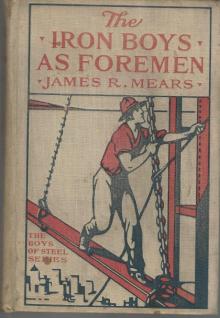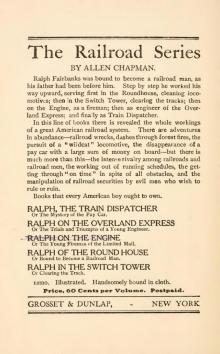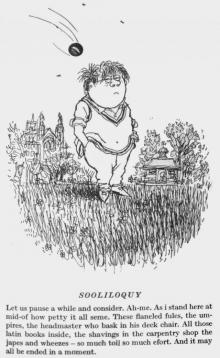- Home
- Mrs. Molesworth
The Constant Prince Page 3
The Constant Prince Read online
Page 3
well, my son," said the English mother; "yet the tournamentsmight show you fit for real warfare."
"That might be very well for the younger ones," said Pedro.
"I am taller than you," said Enrique, indignantly.
"You said I should be your page, and I will not stay at home," saidFernando.
"Hush, my boys; do not dispute," said the Queen. "Remember, the trueglory is in doing our duty. If every prince and gentleman went out towar, who would punish evil-doers and succour the distressed at home!Your father, who is the wisest man alive, knows that; and Edward mustremember it when his time comes. For you younger ones it will bedifferent. The blessed saints guide you to seek the right, and to beworthy of your forefathers."
To whatever degree of cultivation and even of virtue the Mohammedankingdoms had attained among themselves, and whatever injury to learningmay have been caused afterwards to mediaeval Christendom by theirviolent expulsion from the Peninsula, the Moors of Africa were and musthave been simply an embodiment of evil. The organised system of piracywhich they maintained rendered life and property totally unsafe allalong the Mediterranean. A regular system of ransom was in vogue, andwhere the friends of an unfortunate captive were unable to satisfy theirdemands, neither rank, nor age, nor calling, was any protection; andnoble knights and aged priests were chained to the oars of theirgalleys, or toiled among the sands of Africa, while their fate remaineda mystery to their friends at home--whether death, prolonged suffering,or far worse, apostasy had been their portion. Martyr or renegade, itwas an awful choice, to be placed once for all before many an honest,ignorant squire or knight; but "captive among the Moors" was written inmany a pedigree of Southern Europe, in some few even of distantcountries. More still returned, impoverished by their ransom, to tellof their frightful sufferings; while, most terrible thought of all,girls and children disappeared now and again--to what fate? EveryChristian sovereign and gentleman felt the ransom to be a disgracefulblack-mail demanded of them, which yet they knew not how to refuse!There is nothing in the modern world that is quite analogous to thesituation.
The Moors were the enemies of life and property, like the brigands ofour own time, only infinitely more powerful, and as such were feared andhated. They were also, of course, as now, unbelievers, outside the paleof the Church; their conversion was a subject of prayer; they were, ormight have been, the objects of missionary labour. But the Moors of theMiddle Ages were something more than this. They were not only ignorantof Christ; they were the hereditary enemies of Christendom: not merelyof Spain, of Portugal, or of France, nor exactly of the Church Catholic,as we should understand it, but of that sort of visible, territorialembodiment of it for which, in old romance, the Seven Champions foughtand which Arthur and his Knights laboured to spread, and the defence ofwhich made honour as well as religion a spur to every Crusader.Therefore it was not only as national and personal enemies, or asblinded heathens, that the knights of Europe regarded the Turks andMoors, but as the powerful foes of Christ's kingdom on earth, embodiedin Christian nations; so that national honour and religious fervourworked together, and glory alike for earth and for Heaven was won inattacking the Crescent with the Cross. It was not only very sad for aChristian man to see the unbeliever triumph, it was very disgracefulalso.
Alas! if _all_ the evil in the world could have been so embodied!--ifChristendom had had no foes in its own household!--the fight betweengood and evil would indeed have been simplified, though not dispensedwith. It was very clear to an old Christian champion that it was hisduty to fight with evil; to do so with a pure heart and unwaveringspirit was just as hard then as now. Our heroes lived in the dawn of anew day: when other duties were rising into view, other talents comingto be consecrated, but when the old visible symbolical struggle wasstill in full force. For faith, for knowledge, for good government, forthe honour of Christendom, for the old and the new, they all fought andtoiled--and one died.
CHAPTER THREE.
THE THREE SWORDS.
"Oh, mother! mother! can this be true?"
Many months passed before the crude suggestion of the young Infantes wasworked by the King and his ministers into a practicable form; and it isnot necessary here to enter into all the considerations of policy andprudence that were involved. In spite of many feints and pretenceshardly worthy of so liberal a prince as Dom Joao, the Moorish sovereignbecame aware of his intentions, and sent offers of splendid presents tothe Queen for her young daughter, if she would intercede with herhusband and preserve peace.
"My daughter," said Queen Philippa, "has jewels enough of her own. Iknow not your customs; but with us, wives do not interfere with theirhusbands' business."
So, after much discussion to and fro, the fleets were prepared, the armygathered together, and the King determined to take the command of theexpedition. Still, the foremost places were to be given to his threesons, who would thus have every opportunity of earning worthily theirlong-deferred knighthood.
Joao and Fernando were too young for any such hopes, and, to their greatdisappointment, were forbidden to take any part in the expedition atall, but were to remain at home with their mother. Joao consoledhimself with planning future feats of marvellous bravery; but Fernando,who had relied on Duarte's promise, was pronounced naughty andrebellious, and received double tasks, because he would not submitpatiently to his father's decision. His conscience was very tender, andhe learnt the hard lessons diligently, and repented of his fault, whilehe pondered over the tales of boy-martyrs and child-crusaders, which,though held up to his admiration, it seemed so impossible, and even sowrong, to imitate. It was much harder simply to do as he was told; butFernando did his best, and practised patience.
The time was drawing near for the expedition to start, when one morningthe little boy was sitting by himself in a room in the palace of Lisbonwhich was devoted to the studies of the young princes. Fernando sat ona bench by the great oak table, employed in what a boy would now call"doing his sums"--that is to say, he was working out, in the cumbrousmethod of the time, a somewhat abstruse mathematical problem. There wasno ornament to the bare wall, but a great crucifix over the highfireplace; the window was high up in the wall, offering no temptation towandering eyes; and the only spot of colour in the room was the crimsondress and long fair hair of the little prince as he bent over his task.Fernando shared in some degree the strong mathematical turn of his elderbrothers, and did not find his work uninteresting, though it strainedhis boyish powers to the utmost. His brothers were engaged inpreparations for war, and his mother and sister Isabel were at a placecalled Saccavem with the chief part of the court. The little boys hadbeen left behind with their tutors.
Suddenly the door was flung open, and Enrique, dusty and travel-stained,and with a face pale as death, came in. Fernando sprang up with a cryof joy, but his brother's look silenced him. Enrique took him into hisarms and sat down on the bench.
"I have come to fetch you, Fernando," he said, huskily. "Be a braveboy; do not cry. You and Joao must come to mother, for she is ill atSaccavem, and--and--I must take you to her."
Fernando was more frightened by his brother's look of anguish than byhis words, which were too new and strange to be more than halfcomprehended, and there was little time for the indulgence of grief.Enrique hurried their preparations, and soon the two boys were ridingbeside him, with but a few followers, hardly realising, in the haste oftheir journey, what awaited them at the end of it.
For the good Queen Philippa was dying, and the children must lose hermotherly care--her encouragement of all their efforts after goodness andlearning. High aims and kindly ways she had alike set before them; byher own example she had taught them the severest self-denial in themidst of the state necessary for the support of their rank: and the oldchronicles tell--us that her five sons owed to her tender training muchof the deep religious feeling, the loyalty to their father and to eachother, the strong mutual affection and the remarkable virtue, thatafterwards distinguished them. "She constantly tal
ked with them oftheir duties towards their father and to the state," and, spite of thestiff and ceremonious manners of the times, they loved her tenderly, andshowed their love; and for her dear sake, her English habits, opinions,and language became dear to her husband and children, and largelyinfluenced the development of her adopted country.
She lay on her death-bed in the palace of Saccavem. Her ladies stoodweeping round, her confessor was by her side, the low chanting of thepriests who had been praying for her departing soul had ceased for thetime, and before receiving the last Sacraments of the Church she haddesired to take leave of all her children.
Joao and Fernando, as they entered awe-struck into the dim chamber, wereclasped and held back by their sobbing sister, who knelt at somedistance from the high dais on which the Queen's bed was placed. Shelay raised high on her pillows, and on

 The Iron Boys as Foremen; or, Heading the Diamond Drill Shift
The Iron Boys as Foremen; or, Heading the Diamond Drill Shift An Enchanted Garden: Fairy Stories
An Enchanted Garden: Fairy Stories Grandmother Dear: A Book for Boys and Girls
Grandmother Dear: A Book for Boys and Girls Ralph, the Train Dispatcher; Or, The Mystery of the Pay Car
Ralph, the Train Dispatcher; Or, The Mystery of the Pay Car The Children of the Castle
The Children of the Castle The Magic Nuts
The Magic Nuts Uncanny Tales
Uncanny Tales Silverthorns
Silverthorns The Third Miss St Quentin
The Third Miss St Quentin Christmas-Tree Land
Christmas-Tree Land Philippa
Philippa Jasper
Jasper The Little Old Portrait
The Little Old Portrait Mary: A Nursery Story for Very Little Children
Mary: A Nursery Story for Very Little Children Us, An Old Fashioned Story
Us, An Old Fashioned Story The Constant Prince
The Constant Prince Blanche: A Story for Girls
Blanche: A Story for Girls The Cuckoo Clock
The Cuckoo Clock The Carved Lions
The Carved Lions Tell Me a Story
Tell Me a Story That Girl in Black; and, Bronzie
That Girl in Black; and, Bronzie Sweet Content
Sweet Content Boys and I: A Child's Story for Children
Boys and I: A Child's Story for Children The Man with the Pan-Pipes, and Other Stories
The Man with the Pan-Pipes, and Other Stories Bert Wilson's Fadeaway Ball
Bert Wilson's Fadeaway Ball Nurse Heatherdale's Story
Nurse Heatherdale's Story Adventures of Herr Baby
Adventures of Herr Baby Shaggycoat: The Biography of a Beaver
Shaggycoat: The Biography of a Beaver Adventures of Prince Lazybones, and Other Stories
Adventures of Prince Lazybones, and Other Stories Adventures of Piang the Moro Jungle Boy
Adventures of Piang the Moro Jungle Boy